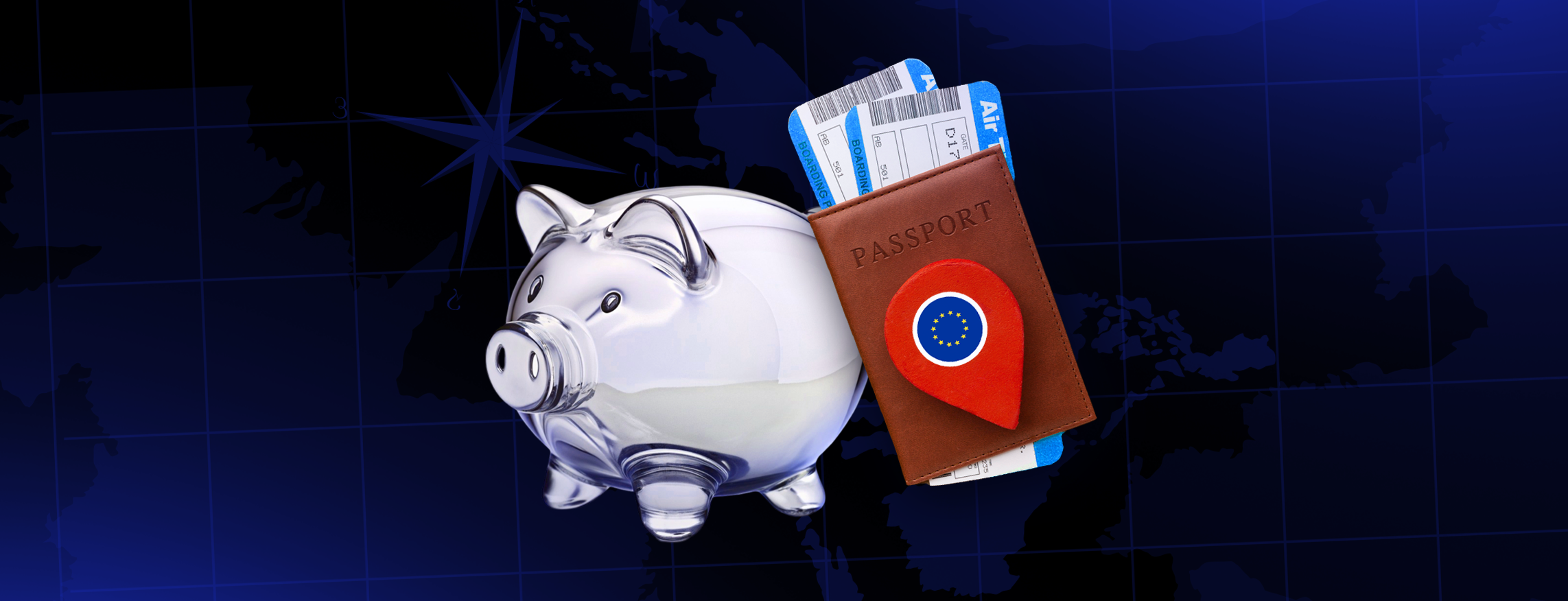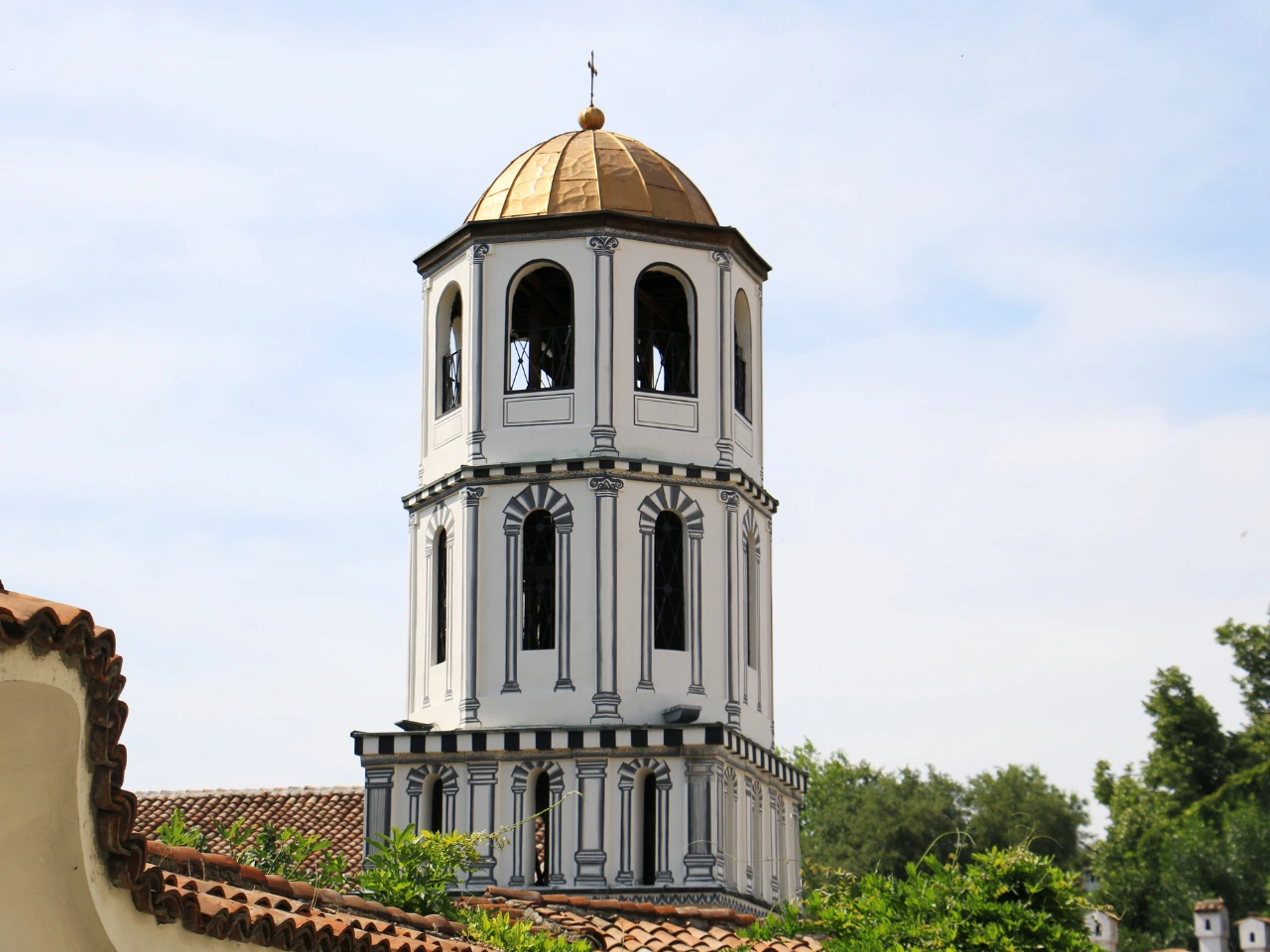
.svg)


1. Tirana, Albania

Tirana, Albania's colorful and energetic capital, is a favorite among budget travelers. With vibrant street art, a laid-back atmosphere, and a rich mix of history and modern culture, it's one of Europe's cities.
Your money goes far here. Accommodation options range from cozy hostels at around €10–€20 per night to boutique hotels and guesthouses averaging €40–€60. Meals are incredibly affordable. Dish like byrek or grilled meat with salad cost €5–€10. You can check out the best restaurants in Albania here.
Skanderbeg Square, the city's lively heart, offers several free or low-cost attractions. Visit the National Historical Museum to explore Albania's fascinating past, admire the stunning frescoes of the Et'hem Bey Mosque, or take a guided tour of Bunk'Art 1 and 2, two Cold War bunkers turned museums. Tickets are about €4–€5.
For a relaxing afternoon, sip coffee at one of the cafés lining the square or unwind in its green spaces. On weekends, you might catch a public concert or open-air event showcasing Albanian music and dance.
2. Budapest, Hungary
Budapest is often called the "Paris of the East" because of its 19th and 20th-century architecture. Still, unlike Paris, it's one of Europe's most affordable capital cities. With its mix of majestic architecture, world-famous thermal baths, and lively nightlife, Budapest offers high value for your travel money.
A decent hotel room or Airbnb costs start from €20, while hostel dorms go for €13. A hearty Hungarian meal, think goulash or chicken paprikash, costs about €8–€12, and local beers are under €3. Public transport is efficient and inexpensive, with 24-hour passes costing just €5–€6.
You can explore the Széchenyi Thermal Bath, one of the largest medicinal spas in Europe, for about €25. Then, wander across the Chain Bridge, explore Buda Castle, and enjoy a sunset view from Fisherman's Bastion, all free to visit. In the evening, Budapest's famous ruin pubs offer an affordable night out, with drinks averaging €4–€6.
3. Porto, Portugal

Porto, Portugal's second-largest city, offers stunning riverside views, friendly locals, and delicious food at a lower cost than Lisbon.
You can find boutique hotels and comfortable Airbnbs for €50–€80 per night, or stay in hostels for €20–€30. Meals are delicious and affordable: a traditional francesinha sandwich or seafood stew costs around €10–€15, and a glass of world-famous Port wine is about €3–€5.
Popular (mostly free) attractions include walking along the Ribeira waterfront, crossing the Dom Luís I Bridge, or visiting the colorful Livraria Lello bookshop. The Bolhão Market and São Bento Railway Station are must-sees that don't cost a cent. For about €15, you can take a scenic river cruise on the Douro.
Transportation is cheap too; a 24-hour metro or bus ticket costs around €7. Porto's welcoming atmosphere, low prices, and excellent Wi-Fi make it among the best European cities for digital nomads. A comfortable daily budget is €60–€70, significantly cheaper than most Western cities.
4. Vilnius, Lithuania
Lithuania's capital, Vilnius, is a picturesque city. Its old towns, creative districts, and green parks make it one of the best low-cost destinations for travelers seeking charm without crowds.
Accommodation costs €38 per night, and even less if you stay in hostels for €10. Meals are a pleasant surprise; traditional dishes like cepelinai (potato dumplings) or soups cost around €6–€10, and coffee averages €2–€3.
Many of Vilnius's attractions are free or inexpensive. Explore the Old Town, climb Gediminas' Tower for city views (€6 entry), or cross into the quirky Republic of Užupis, an artist neighborhood with its own constitution. Public transportation is reliable and cheap, about €1 per ride, and most of the city is walkable.
Average daily budget: €40–€50, including accommodation, meals, and sightseeing.
5. Sofia and Plovdiv, Bulgaria

Bulgaria might be Europe's most underrated gem. Its capital, Sofia, and Plovdiv offer a rich mix of history, affordability, and easy living.
In Sofia, a private room or Airbnb costs €20, while hostels cost €5. A full restaurant meal averages €8–€12, and local beers cost just €2–€3. Public transport is one of the cheapest in Europe, with a metro ticket costing €0.80.
Explore Alexander Nevsky Cathedral, Vitosha Boulevard, or Borisova Gradina Park. Museums and galleries charge modest fees of €3–€5.
Plovdiv, one of Europe's oldest cities, offers even better value. Visit the Ancient Theatre of Philippopolis, stroll through the Kapana Art District, or relax at a café overlooking the cobblestone streets. The average daily budget is €35–€45, including meals, activities, and transport.
Tips to Get More Value From Your Travels
1. Travel Off-Season for Huge Savings
Spring (March–May) and autumn (September–November) are your sweet spots. Airfare and accommodation prices can drop by 15%-25% compared to summer. You'll also enjoy cooler weather, fewer crowds, and a more authentic local experience. For instance, in places like Budapest or Porto, you can find boutique hotels or Airbnbs starting from €35–€50 per night in shoulder months which is a steal compared to peak summer rates.
Use tools like Google Flights, Skyscanner, or Hopper to track flight prices and get alerts when fares drop. Booking at least 6–8 weeks in advance usually lands you the best deals.
2. Use Budget Airlines or Trains to Hop Between Cities
Europe's budget carriers, Ryanair, Wizz Air, and EasyJet, often have one-way tickets between countries for as little as €20–€40, especially if you travel light (carry-on only). For scenic trips, check out FlixBus or Interrail/Eurail passes; buses can cost under €10–€15 for shorter routes and are surprisingly comfortable.
Always compare airports; some budget airlines fly into smaller ones (like Beauvais for Paris or Hahn for Frankfurt), which may require an extra shuttle fee. Still, it's often cheaper than mainline flights.
3.Eat Local, Where the Real Value and Flavor is
Forget pricey tourist restaurants. The best and most affordable meals are found in local taverns, bakeries, and markets. In Portugal, a local favorite often includes soup, main course, dessert, and wine for under €10.
Ask locals where they eat or use Google Maps' "Popular with locals" filter. You'll find gems that serve better food at a fraction of tourist prices.
4. Stay Longer and Save More
If you can, consider staying at least a week or a month in one city. Many Airbnbs and serviced apartments offer discounts for longer stays. Co-living spaces and hostels with private rooms are also ideal for remote workers who want affordability plus a built-in community.
Platforms like Booking.com, Airbnb, and Nomad Stays often offer "monthly stay" deals. Filter your search by "discounted stays" or "long-term discounts."
5. Use Public Transport, or Better Yet, Walk or Bike
In many European cities, public transport is both efficient and cheap. A single ride usually costs €1–€2, and daily passes often cover buses, trams, and metros. Cities like Vilnius, Sofia, and Porto have reliable systems, and walking or biking is an easy way to save money while soaking in the sights.
Download local transport apps like Citymapper or Moovit for real-time schedules and cheaper ticket options. Some cities also offer 24–48-hour tourist cards that include unlimited transport and discounts on attractions.
6. Keep Your Money Safe and Transfers Cheap
Whether paying for accommodation, sending money home, or topping up a friend's travel fund, Pesa helps you handle all your international transactions affordably. With competitive exchange rates and low transfer fees, you can make cross-border payments without worrying about hidden costs eating into your budget.
Always compare currency conversion rates before you make a payment. Using Pesa ensures you get a fair rate, unlike banks or airport exchange counters that often add hefty markups.
7. Stay Connected Without Paying Too Much
Data roaming can get pricey, so grab a local SIM card or eSIM when you arrive. Countries like Portugal, Hungary, and Romania offer 10–20 GB prepaid plans for around €10–€15. Reliable internet means you can keep working, studying, or managing money transfers on the go.
You can use free Wi-Fi in cafés, train stations, and public squares. However, for security reasons, make sure to use a VPN when handling payments or logging into accounts.

Related articles
See all







.png)






